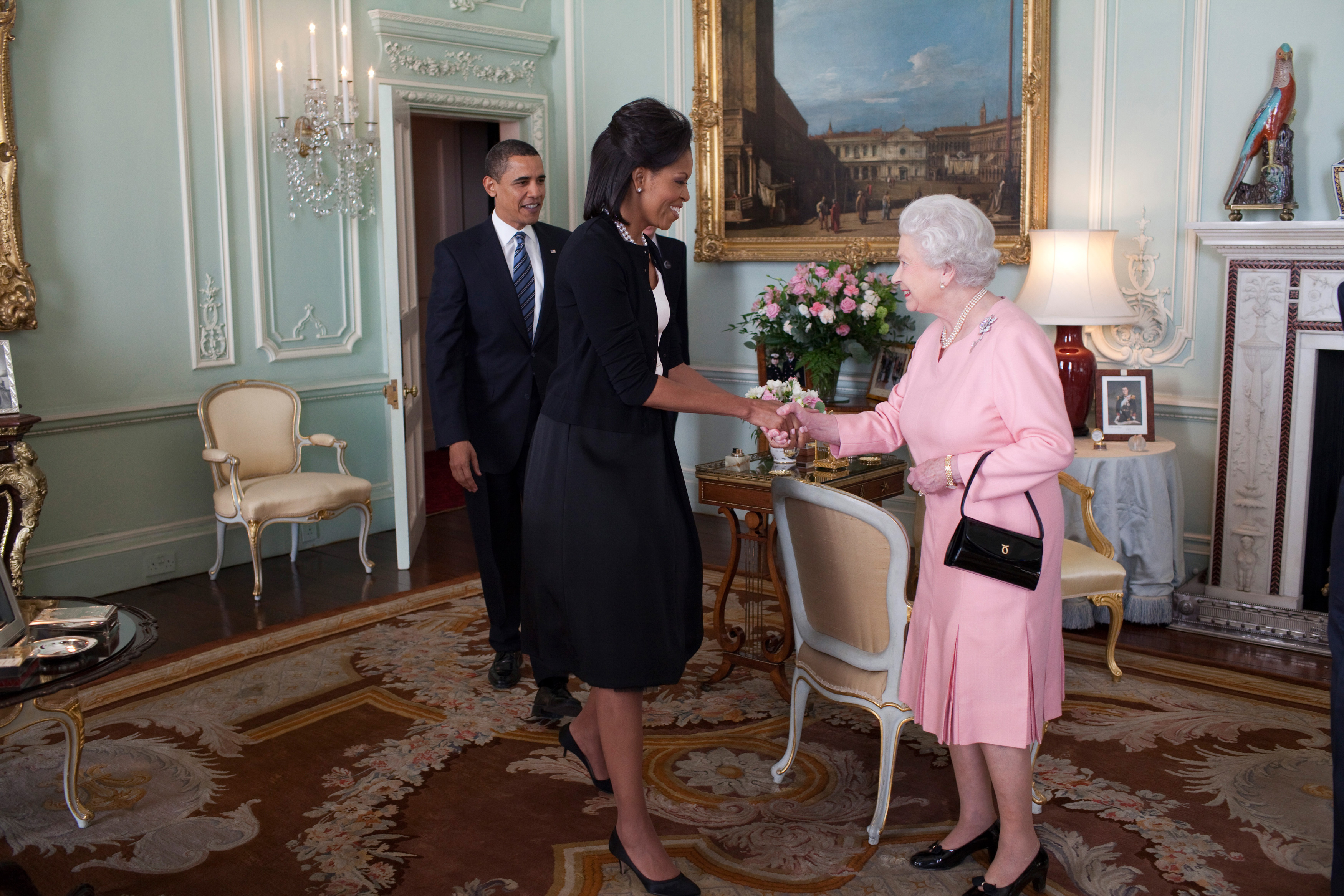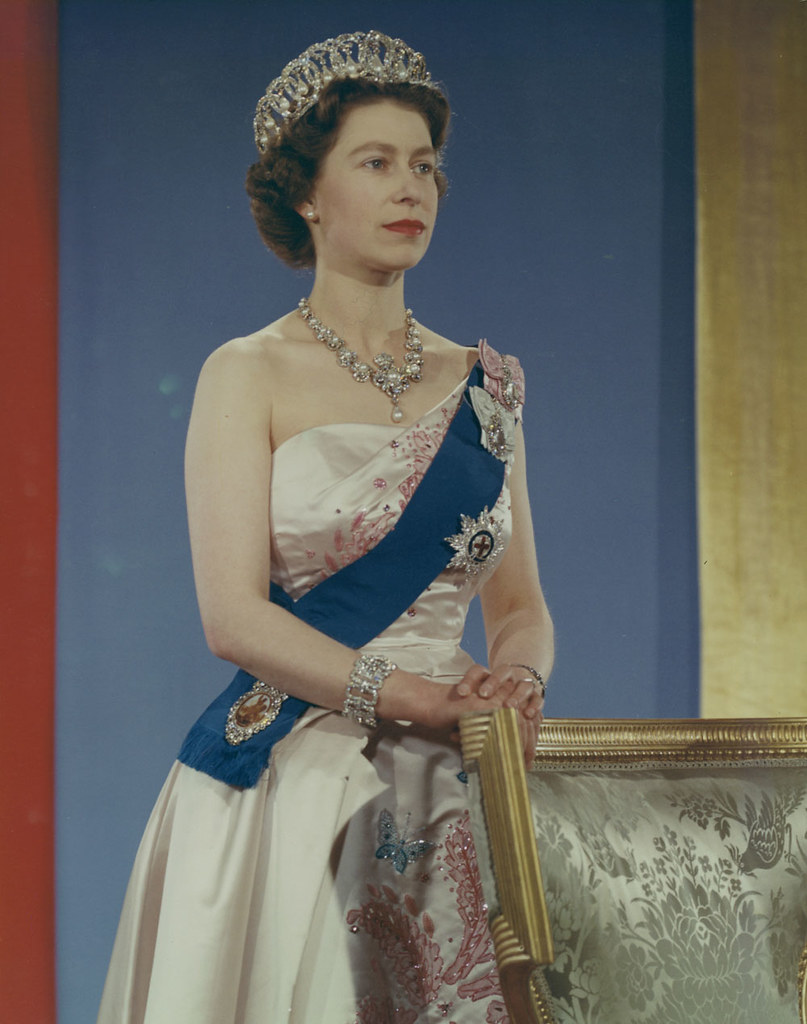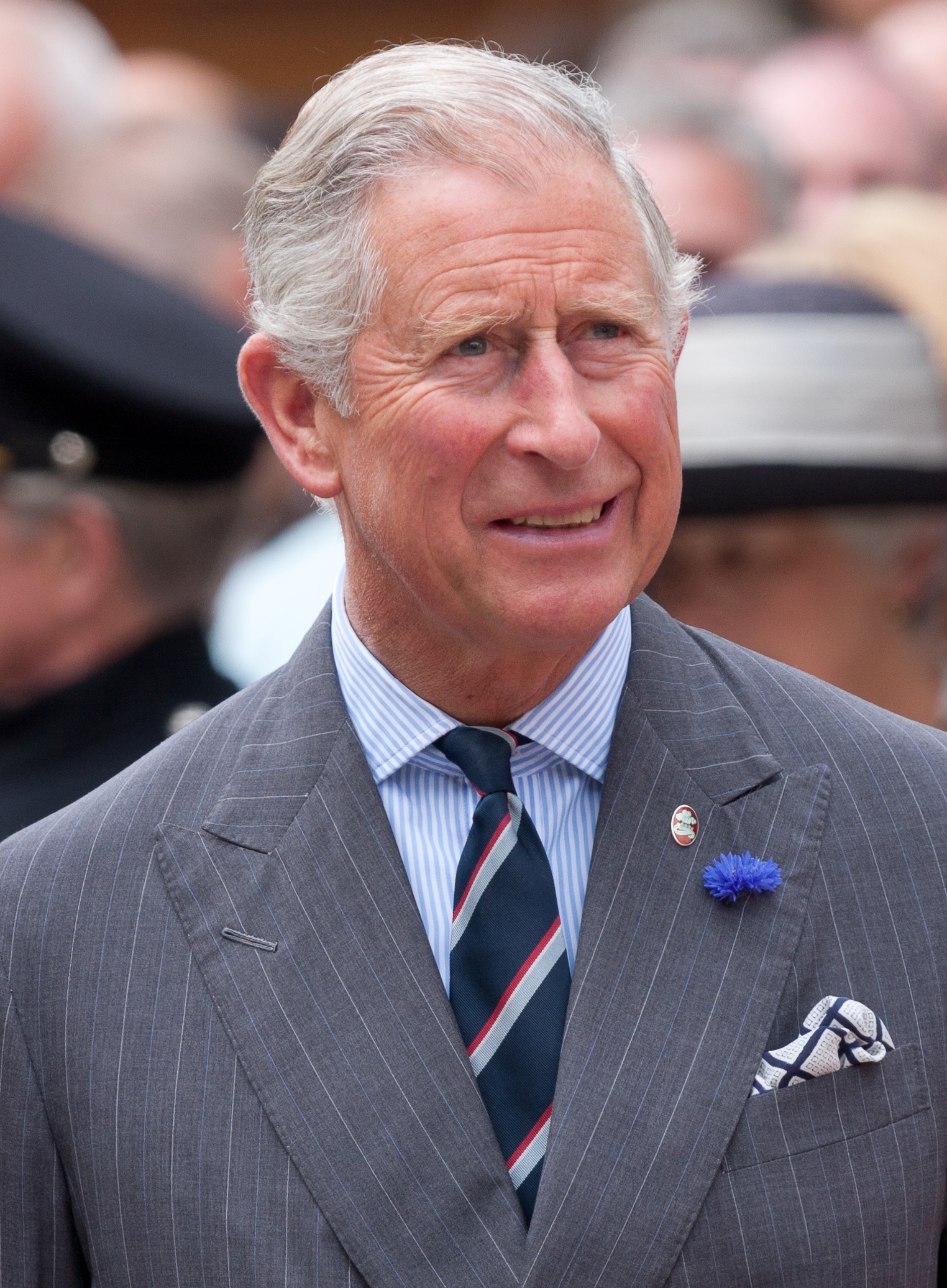Queen Elizabeth II: Sapphire Stability
 President Barack Obama and First Lady Michelle Obama are welcomed by Her Majesty Queen Elizabeth II to Buckingham Palace in London, April 1, 2009. Official White House Photo by Pete Souza (https://upload.wikimedia.org/wikipedia/commons/f/fd/Barack_Obama_Michelle_Obama_Queen_Elizabeth_II_Buckingham_Palace_London.jpg)
President Barack Obama and First Lady Michelle Obama are welcomed by Her Majesty Queen Elizabeth II to Buckingham Palace in London, April 1, 2009. Official White House Photo by Pete Souza (https://upload.wikimedia.org/wikipedia/commons/f/fd/Barack_Obama_Michelle_Obama_Queen_Elizabeth_II_Buckingham_Palace_London.jpg)
On Monday February 6th, Queen Elizabeth II celebrated her Sapphire Jubilee, marking 65 years on the throne. She is the first British monarch ever to do so, surpassing the 63 years and 216 days of Queen Victoria, whom she also surpassed in 2015 to become the longest reigning British monarch in history. Her time spent as Queen is of vital importance to how the world developed into what exists today, but more than how long she has stood, it is necessary to turn to what she has come to stand for and represent.

The world today can be described in many ways, both good and bad, but the underlying theme that seems to be arising is that of rapid change. This could be seen as progressive change or change from decay, but nevertheless, there are shifts in our realities each and every day. In times such as these, people tend to turn to the past; to times of relative or perceived stability, and continuity. People also turn to modern day fixtures that have stood the test of time and remained unchanged despite the ever moving current around them. The Queen, the monarchy, and the presence of royalty is one such fixture in the United Kingdom. It is a connection to the past that many seem to use as solace in the ever hostile political climate today. This in no way means that the past was any less characterized by bedlam, but rather shows the incredible tenacity and endurance of an institution, in spite of past and current disruptions, which is a remarkable feat.
When asked if they would favour Britain becoming a republic or staying a monarchy, 76% of Brits said that they wish for it to remain a monarchy. When asked if they thought Britain should continue to have a King or Queen as their head of state, or have an elected president, 86% of Brits said that they wish to continue to have a monarch as their head of state. These approval ratings do not indicate full support for the monarchy, but relative to the approval ratings of political institutions elsewhere, these numbers are astounding.
As of January 2017, the US Congress had an approval rating of 17% and Donald Trump sits at a 39% approval rating. Neither have the overwhelming support of the British monarchy. The United Nations, which is supposed to be a cooperative joining of nations, only has an approval rating of 38% as of February 2016. It may be argued that the monarchy is no longer a truly political facet in the UK, but it seems that it is difficult even for non political causes and entities to reach similar levels of positive consensus across a widely heterogenous group of people. The pope has a global approval rating of 54% and only reached a comparable 85% when the population sample was exclusively Roman Catholic. Whether it is a political or non political figure, it is very difficult to find one with the widespread support and acceptance that the British monarchy receives.
History has always been characterized by conflict. From the Spartans and the Athenians, to Diocletian and Christians, the struggles of feudalism, world wars, nuclear armament, and international terrorism, there has never been an absence of dissension. However, the difference is that today its presence is exceedingly unpredictable in nature. This makes the monarchy even more important, as it is something that persisted before this time and continues to despite great uncertainty. The popularity it enjoys shows the strong desire people have for something they can depend on, and that is worthy of praise as well as the desperation they have to hold onto something and have it remain the same.

There will be challenges to this enduring traditional centrepiece in the years to come, and for the sake of normalcy, it is vital that it continues to carry on. Charles taking over for Elizabeth will be one of the most paramount shifts in modern history. No one under the age of 65 has ever known there to be a King of England, there has only ever been a Queen of England and that Queen is Elizabeth. There have been thirteen Prime Ministers since 1952, but only one monarch. Churchill, Thatcher, Blair, and Cameron have all come and gone, but she remains steadfast in her place. A world without Elizabeth II as Queen is not one many know, and even those who do are far removed from it, many being too young to even recall that different time. Even an eighty year old would be only fifteen when Elizabeth took the throne, making the Queen’s presence heavily ingrained on the worldview of most of the international population. She adorns currency and stamps, setting the Guinness World Record for appearing on the coinage of at least thirty five countries, she is the subject of movies and television shows, and the phrase “Queen of England” has become coined as a certainty. “Queen’s English” and “For Queen and country” are also reflective of this mental presupposition that people have.

There are a few guarantees of stability that will support this transfer. There will still be continuity of the same blood line, and the family members that will follow have been in the spotlight their entire lives, making them very familiar faces and presences. The Queen’s legacy and influence will carry on long after she leaves the throne, still allowing people to hold onto what they have always known. Whether it be a glimpse of the Queen, times spent at parades, television announcements, or royal weddings, people will hold onto the memories forever imprinted on their minds. Although the current £369 million renovation plan for Buckingham palace does not sit well with everyone, this decade long project shows just how important it is for tradition and linkages to the past to be preserved, at a time when they are increasingly being challenged.
Most importantly, she is a reminder of the importance of tradition in a time when divergences from the past are becoming ever deviant. We cannot forget about the past as we look to the future, and we cannot forget the power of history and legacy in the world today. With the inauguration of Donald Trump, the rise of the new radical right in Europe, and so many other shocks to the system, there must be something for us to hold onto, otherwise we will be swept away by the currents of uncertainty. We can learn from past mistakes, but we can, and should, also covet the jubilance of past wonders, fostering a sense of nostalgia that will allow us to move forward without forgetting where we came from and who made it that way. Now is as good of a time as any to say, “keep calm and carry on,” because carry on she will.
